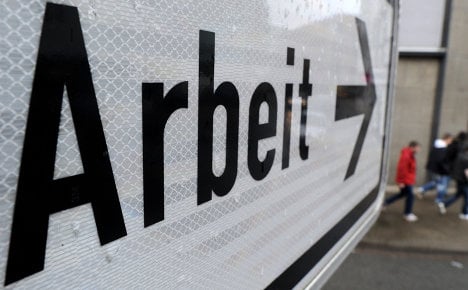The annual average jobless total will stand at 2.84 million in 2012, a decrease of 130,000 from 2011, the think-tank said in a new study.
“In the past two years, the development on the labour market has been excellent,” said the head of IAB’s forecasting department, Enzo Weber.
“This year, the ascent won’t be quite so steep. Nevertheless, the labour market will remain robust and again there will be more people in work than last year,” Weber predicted.
Germany, Europe’s biggest economy, has fared much better than its eurozone partners in the current crisis, even if it has not been able to escape its effects completely.
In final quarter of last year, gross domestic product contracted by 0.2 percent.
“The environment is therefore fundamentally difficult,” Weber said.
“However, indicators suggest that the situation will improve, even if the momentum for the labour market this year will be diminished.”
Looking for an English-speaking job in Germany? Visit The Local’s Job Section
IAB was basing its forecast on the assumption that the German economy would grow by 1.1 percent this year, which is more optimistic than many.
The government itself is officially pencilling in 2012 growth of 0.7 percent, even if finance minister Wolfgang Schäuble has said that was a “cautious” forecast.
This week, the economic research institute RWI revised upwards its growth forecast for Germany to 1.0 percent from 0.6 percent previously.
Last week, a panel of top economic experts, known as the “Five Wise Men” also predicted that unemployment, currently at record monthly lows, would continue to decline in 2012, with the annual average jobless total set to fall to 2.863 million from 2.976 million in 2011 and the jobless rate would fall to 6.7 percent from 7.1 percent.
AFP/jcw



 Please whitelist us to continue reading.
Please whitelist us to continue reading.
Member comments